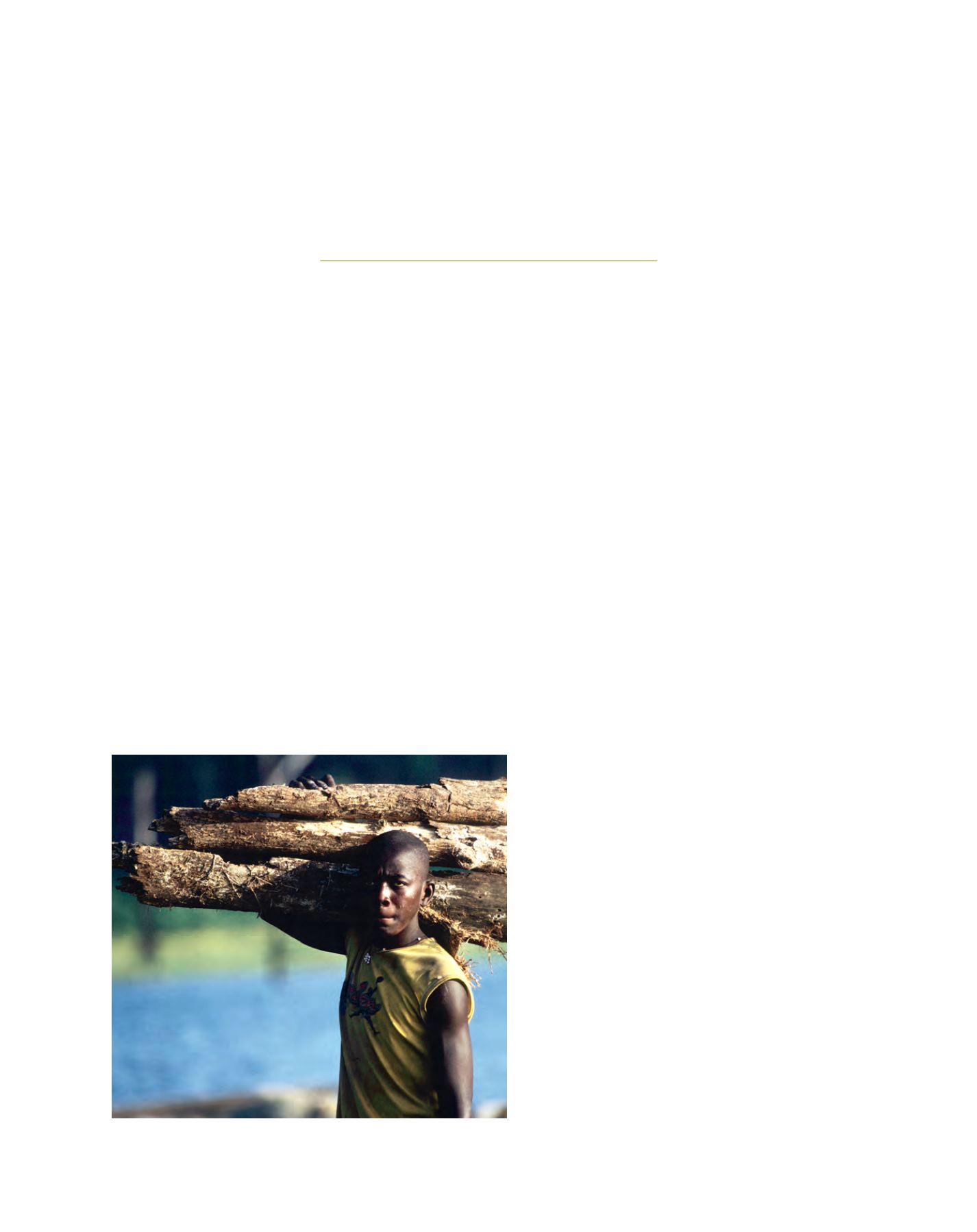

[
] 221
German Development Cooperation
in the forest sector – capacity development
for benefiting people
Heiko Warnken, Head of Department Environment, Federal Ministry
for Economic Cooperation and Development, Germany
T
he world’s forests provide a livelihood for more than one
billion people. They use the forest as a source of income,
construction materials, fuelwood, food and medicine.
Forests contain and preserve 75 per cent of global biodiversity,
and it is well known that they store carbon and produce oxygen,
thus regulating our global climate. This significant role of the
worlds’ forests in sustainable development and green economies
has been the focus of the German Development Cooperation in
the forest sector for more than 30 years. Forests, biodiversity
and climate change play a major role in German official devel-
opment assistance (ODA), building on strong political support.
At present Germany is investing about €1.5 billion in ongoing bilat-
eral tropical forest programmes worldwide. The bulk of funding
by the German Federal Ministry for Economic Cooperation
and Development (BMZ) is dedicated to bilateral coopera-
tion in Germany’s partner countries and regions. Most of BMZ’s
programmes are implemented by GIZ (technical cooperation)
and KfW Development Bank (financial cooperation),
working closely with local partners. Today, BMZ
cooperates with 44 partner countries in the context of
forest conservation on topics ranging from Reducing
Emissions from Deforestation and Forest Degradation
(REDD+) and sustainable forest management, forest
governance and policy reform, especially the Forest Law
Enforcement, Governance and Trade (FLEGT) Action
Plan of the European Union, to protected forest area
management, community forestry, small and medium-
sized enterprises and forest certification.
Germany also has increased its multilateral activities.
As the most important global initiative on REDD+, the
Forest Carbon Partnership Facility was originally spear-
headed by Chancellor Angela Merkel at the 2007 G8
summit and Germany so far has committed
@
54 million
to it, mainly through BMZ. This underlines Germany’s
firm belief that, as a results-based instrument, REDD+
provides huge potential for development, climate
change mitigation and protection of biodiversity. The
World Bank-affiliated facility today has 37 partner
countries and 16 donors and has quickly developed into
the largest multilateral pilot initiative for REDD+. This
lends vital impetus to forest protection, both on the
ground and in the international climate negotiations.
The Millennium Development Goals as well as the
Paris Declaration on Aid Effectiveness and the Accra
Agenda for Action provide the overall framework for
German Development Cooperation’s work. Environment
and forest-related cooperation is guided by the Rio
Conventions and the international forest regime. BMZ
follows an integrated cross-sectoral approach support-
ing capacity development at all levels – local, national
and regional – to enable its partners to manage their
forests for the welfare of their own and future genera-
tions. Implementation of the programmes is managed
by decentralized structures, the application and combi-
nation of instruments such as technical and financial
cooperation, public private partnerships and budget
support. Provision of German ODA is subject to close
consultation and negotiation with partner govern-
ments as well as civil society. One outstanding example,
Forests are among Cameroon’s most important natural resources
Image: G. Uluntuncok
















